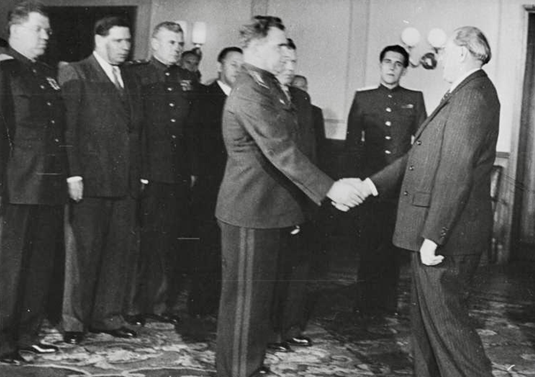Empathetic Leadership and Advocacy
- Maria A. Kithcart

- Apr 7, 2022
- 2 min read

Pictured: Commemorative badge and citation honoring veterans of the 62nd (8th Guards) Army presented to Polycarp Dmitrievich Ovchinnikov, signed by Marshal V. I. Chuikov. In later years, Ovchinnikov served as the Secretary of the Veterans Council for the 62nd/8th Guards Army.
In the BBC miniseries “War of the Century,” German, Ukrainian, and Russian veterans and civilians were interviewed to share their experiences on the Eastern Front in WW2. Soviet soldiers and the medical staff who aided them were sometimes captured by the Germans. In the fourth episode of the series, Tatiana Nanieva, a Soviet prisoner of war, shared her ordeal with her interviewer.
During the Great Patriotic War, she served in the Red Army as a volunteer nurse who was captured by the Germans for forced labor. When she was finally liberated, two Red Army soldiers approached her with contempt. After being processed, she was one of two million Soviet POWs who were sent to filtration camps run by the secret police. Here she was accused of being a traitor under Article 58B, ‘Betrayal of the Motherland.’ As a result, Tatiana was sentenced to 6 years in prison and a lifetime exile in Siberia.
As one can imagine, this was a devastating and life-altering event for people like Tatiana. After researching Marshal Chuikov, I discovered an anecdote shared about his compassion and empathy for a veteran of Stalingrad who was in a similar situation. As the Commander of the 62nd (8th Guards) Army, he spent many years in the position of chairperson for the veterans’ association. He actively served and advocated for these veterans, as they held a special place in his heart. Vasily Ivanovich’s grandson Nikolai Vladimirovich shared about a particular incident when a former Soviet POW who had served in the defense of Stalingrad approached the Commander for help:
“Grandfather treated the participants of the battle with care. Here is an example. [General] Shumilov had a division commander who covered the retreat to Stalingrad. He was taken prisoner. And the attitude towards those who were in captivity [during the war] was very bad. After his release, he wanted to restore justice and his good name, remove suspicion from himself, and get a normal job. He came to an appointment with Shumilov, with whom he fought [in the 64th Army]. Shumilov did not accept him. Then he went to Chuikov. Grandfather accepted him [and] helped him restore all the awards, got him a job.”



